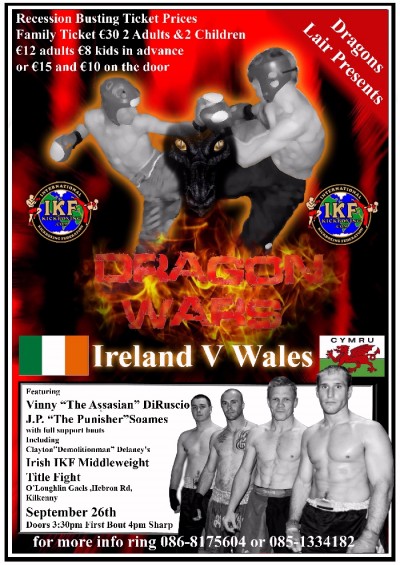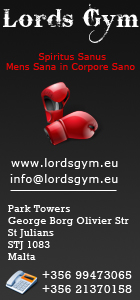Posts Tagged ‘Wales’
Boxers of Yesteryear: Joseph “Joe” Erskine
JOE ERSKINE: British and British Commonwealth Heavyweight Champion, 1950s
Renowned for his ring-craft and defensive shrewdness, Cardiff’s Joe Erskine was described in Boxing Monthly as “probably one of the finest technicians in British heavyweight history.” Between 1958 and 1960, Ring Magazine continuously ranked Erskine as one of the world’s ten best heavyweights. Standing 5’11” and weighing 195 lbs at his peak, Erskine accumulated an overall record of 45-8-1 (13 kayos) during his ten-year professional career. Angelo Dundee who saw his prospect Pastrano defeated by Erskine said he was surprised by his skill - further remarking that if Erskine had been just a bit bigger he could have been a world beater.
Joseph “Joe” Erskine, was born on the 26th January, 1934 (Died 2 February, 1990)in the Butetown district of Cardiff, Wales. During his boxing career he was Amateur Boxing Association Champion, Inter-Services Champion and British Army Champion in 1953, he turned professional in 1954. As a pro boxer he held the British heavyweight title from August 1956 to June 1958. In all, he won 45 of his 54 professional bouts, losing 8, with one drawn, the best wins were over George Chuvalo, Henry Cooper, Dick Richardson, Uli Ritter, Jack Bodell, Johnny Williams, Joe Bygraves, and Willie Pastrano.
As a professional Erskine went undefeated in his first 30 professional bouts. During these years, he defeated Henry Cooper (11-1; eight kayos), Dick Richardson (17-2-1; 14 kayos), and Johnny Williams (60-9-4; 38 kayos). The victory over Williams, a fifteen round decision in 1956, earned Erskine the British heavyweight title.
|
|
Career Highlights of JOSEPH “JOE” ERSKINE
On 15 December, 1955, Erskine had his first fight against Henry Cooper, at Harringay Arena, in an eliminator for the British heavyweight title, and won the ten-round fight on points.
On 27 August, 1956, Erskine won the British heavyweight title, which had been vacated by the retirement of Don Cockell. He beat fellow Welshman, Johnny Williams on points in a fifteen-round fight at the Maindy Stadium, Cardiff.
On 19 February, 1957, Erskine lost for the first time, a first round kayo at the hands of dangerous Cuban veteran Nino Valdez (37-15-3; 30 kayos). Undeterred by this setback, Erskine rebounded by beating Cooper again, taking the British Commonwealth title on points in a battle of left jabs. Two months later, Erskine retained his title by outpointing Jamaican Joe Bygraves over 15 rounds.
On 17 September, 1957, he added the British Empire (Commonwealth) heavyweight title, when he beat Henry Cooper for the second time. The fight was at Harringay Arena over fifteen rounds, and was won on points.
He successfully defended his British Empire (Commonwealth) against Jamaican-born heavyweight Joe Bygraves on 25 November, 1957, again winning over fifteen rounds on points.
On 21 February, 1958, he unsuccessfully fought for the European heavyweight title against Ingmar Johansson, in Gothenburg, Sweden, losing on a technical knockout. Erskine’s corner threw in the towel in the thirteenth round as he was under heavy attack by the Swedish power puncher.
On 3 June, 1958, he defended both his titles against Brian London, of Blackpool in a bout at the White City Stadium, London. Erskine was knocked out in the eighth round.
On 24 February, 1959, Erskine fought and defeated the talented American boxer Willie Pastrano, who was later (in 1964) to become World light-heavyweight champion. The fight was at the Wembley Stadium over ten rounds and Erskine won on points.
On 24 June, 1959, he fought another Welsh boxer, Dick Richardson in a ten-round bout at Coney Beach Arena, Porthcawl, Wales, and won on points.
In the meantime Henry Cooper had defeated Brian London to take the British and Commonwealth titles from him. On 17 November, 1959, Erskine fought Cooper for both titles, having beaten him on their two previous meetings. The bout was held at the Earls Court Arena, London. Cooper won the fight on a technical knockout. Cooper, who was renowned for the power of his left hook, floored Erskine twice with terrific left hooks and Erskine was hanging almost unconscious over the lower rope when the referee stopped the bout.
On 21 March, 1961, Erskine fought Cooper again for the two titles, this time at the Empire Pool, Wembley, and again lost on a technical knockout, this time in the fifth round.
George Chuvalo Vs. Joe Erskine - October 2nd, 1961 - The Greatest Win Of Erskine’s Career - Erskine went to Toronto, Canada to fight George Chuvalo, who was hoping to show that he had the talent to fight for the world title against Floyd Patterson. Unfortunately for Chuvalo the fight, was stopped in the fifth round and Chuvalo was disqualified for persistent head butting. Erskine claimed that he was butted eight times during the five rounds.
On 2 April, 1962, he fought Cooper for the fifth and last time, this time at the Ice Rink, Nottingham. Cooper retained his titles by winning on a technical knockout in the ninth round.
On 13 October, 1963, he fought the famous German, southpaw, Karl Mildenberger, in Dortmund, Germany, and lost the ten-round bout on points.
On 3 March, 1964, Erskine fought Jack Bodell, a British champion of the future, and defeated him on points over ten rounds.
His last fight was against Billy Walker on 27 October, 1964 at the Empire Pool, Wembley. He lost the ten-round bout on points.
In his 54 professional bouts Erskine, won 45 (13 on knock-outs), and lost 8 (6 on knock-outs). One of his bouts was drawn. ). Although just 31 years old and still a formidable fighter, Erskine retired from boxing after the Walker bout.
WBF Announce Gaelic/Celtic Title
NEWS RELEASE – World Boxing Federation a.s.b.l. (WBF)
December 2, 2023
The World Boxing Federation has announced the creation of a regional European title which will pique the interest of boxers, and fans worldwide, as the new WBF Gaelic/Celtic Championships will be open to any boxer from a Gaelic or Celtic nation or heritage.
Of course, the six original Celtic nations are Ireland, Scotland, Wales, Cornwall, Brittany and the Isle of Man, however Gaelic people also have roots in parts of Spain, Portugal, France and Nova Scotia. In any case, regardless of citizenship, Gaelic and Celtic parentage is the mark of eligibility for these titles, which are about to start by January 1, 2012.
Credit for the creation of these championships goes to new WBF Irish Republic Representative David Walshe, who reasons:
“The criteria to qualify for an Irish title restricts many non-Irish-based boxers the opportunity to fight for what is seen in their eyes as a very important title because of their Irish lineage. The WBF Gaelic Celtic Championships, however, includes hundreds of boxers all over the world and gives them a chance to box for an Irish-connected title.”
WBF European Coordinator Olaf Schroeder, backed with the support of WBF President Howard Goldberg and WBF Vice President Jean Marcel Nartz, is happy for the World Boxing Federation to fill this gap and be the leading sanctioning organization in this area.
“David (Walshe) and myself believe that our Gaelic/Celtic titles will soon become a serious challenger to the Commonwealth belts, because the quality of boxers eligible is of a much higher standard,” Schroeder said, “and thus provide a direct path to a shot at the WBF world title.”
Connor Confident For Gorman Showdown
TKO BOX OFFICE
Miranda Carter and Bruce Baker
Proudly Present
GREAT EXPECTATIONS
Sunday 18th September 2011 @ York Hall, London
By Rio
London - Friday, 8th September 2011
Connor In Confident Mood Ahead Of September 18th Showdown With Gorman
Mitcham, Surrey Welterweight Danny ‘Cassius’ Connor is confident that he will continue his winning ways, when he faces Aberystwyth, Wales’ Sean ‘Showtime’ Gorman, at the Miranda Carter and Bruce Baker co-promoted ‘Great Expectations’ event at York Hall in Bethnal Green, London, on Sunday 18th September.
Connor, who is coached by Alec Wilkey at the TRAD TKO Boxing Gym in Canning Town, has managed to overcome a poor start to his professional career, where he drew one and lost four out of his first five bouts, and now seems to have his career back on track following two excellent wins just prior to the summer break.
It’s clear that Connor is confident that his winning streak is set to continue, as earlier today he said, “He’s a Welsh kid, so we know he’s going to be fit, with all that sheep chasing they do up there.
He’s gonna be strong obviously. He’s had six fights but only won the one, so not too brilliant, but to be honest I don’t take much notice of records as they are just numbers and at the end of the day records are for DJs aren’t they.
We’re just going to get in there and do the business, do everything that I’ve worked on in the gym with my coach, Alec Wilkey.
I’m looking to build on my recent wins. My first win was against Duane Grimes, who’d had one and got knocked out, that was by Glenn Foot who was a highly talented amateur who really adapted well to the pro game. He’s probably five or six and o, he’s a really, really strong kid.
Duane had been knocked out by him, he then boxed me and I just used my skills, I boxed him and out foxed him. He’s obviously not a bad fighter as the fight after me he went to Southampton and knocked out by Floyd Moore.
In the second fight I boxed Danny Dontchev, yeah he’s a journeyman, but he’s one of those journeyman that don’t know his role and comes to win. He uses his head and slings it in everywhere, so he’s really messy. He’s a bit of a scrappy fighter to be honest, but I did what I had to do and stuck with my plan, I didn’t take no risks, used my jab and out boxed him.
Since then I’ve kept in shape and going to proper do the business this time, no ones going to recognise me, hands nice and tight, banging out body shots and that. Yeah, I’ve improved a hundred percent, everyone’s going to see a different fighter on the eighteenth.
I can’t wait to show everyone, I am so confident coming into this fight it’s unreal.”
Danny Connor versus Sean Gorman will feature on the Miranda Carter and Bruce Baker co-promoted ‘Great Expectations’, which takes place at York Hall, Bethnal Green, London on Sunday 18th September 2011.
Co-Headlining the show are British Light Welterweight Champion Ashley Theophane, against a yet to be named opponent, and Southern Area Cruiserweight Champion Leon ‘Solid’ Williams against Battersea’s boxing Fireman Nick ‘The Ox’ Okoth.
Supporting the illustrious Theophane and Williams is a nine bout card featuring the cream of local talent.
Doors open at 2pm and the first bout is at 3pm.
Tickets for ‘Great Expectations’ are on sale now - priced £35 (Unreserved) or £65 (Ringside), book on-line at www.tkoboxoffice.com or in person at The TRAD TKO Gym, Gillian House, Stephenson Street, Canning Town, London E16 4SA. For further information please call 07960 850645.
PHOTO CREDIT: Gianluca (Rio) Di Caro
JustListen2This Publicity & Promotion
London, UK, Gzira, Malta & Philadelphia, USA
Boxers of Yesteryear - Tommy Farr
.
By Daniel Ciminera
A legend of boxing, does not have to be your favourite boxer. Nor even the best of their time. But someone who’s story, or ring wars are inspiring long after they have retired and even died. These people become the reasons boxing was so exciting and drew me in like a moth to a flame when I was a child. I’m not very old, I’m only 25, so perhaps these people have more to do with my father’s influence on me as he was the one who got me interested in boxing, himself boxing for our country. Despite not being old enough to have seen most of these guys live, I was brought up watching tapes of them and being gripped as though I were ringside, throwing every punch along with them and screaming them on to victory. After all, that’s what boxing is all about right?
I would like to begin with Tommy Farr as I am from about 2 miles from where he was born and raised and he is still something of a local hero. Many gymnasia across Wales are adorned with some sort of image of Tommy, and he is held in the highest regard by all. He was a fighter who, not only gave his all inside the ring, but was a great example and role model outside of it too, always sure to spend a lot of time with his family.
Farr spent his early life, as did most people from the poverty stricken South Wales valleys, “down the coal-mine”. The whole area is built around coal mining. Farr hated this life with utmost passion and was later to describe boxing as “the lesser of two evils”. At the age of twelve, having left school already, Farr took part in his first official contest, over six rounds in Tonypandy. He won the fight via a points decision and his appetite had been well and truly whetted. He was nicknamed “The Tonypandy Terror” thereafter.
His professional record hosts 126 bouts, with 81 wins (24 by KO), 30 losses, 13 draws and 2 no contests, although Farr was also a keen “booth boxer”, fighting at fairgrounds and such. Including his “booth” fights, his total career fights amasses to 296. An astonishing number in comparison to today’s boxers, and given that his original retirement was at the age of 26, this is even more amazing!
You could describe Farr as a journeyman, with ups and downs, and seemingly every time he’d build an unbeaten streak, he’d get beaten and be back to square one. However, his luck was to change in the mid 1930s, Farr managed to string together seven professional wins to receive a chance at the Welsh Light-Heavyweight title, outpointing Randy Jones to take the title and went onto another six straight wins. Then, just as with the rest of his career, he was to lose. He lost three times against Eddie Phillips, the last of which was for the British Light-Heavyweight title.
Farr then came back into favour winning eighteen contests straight, including wins against memorable opponents and former Light-Heavyweight champions, Tommy Loughran and Bob Olin as well as another renowned Welsh boxer, Jim Wilde. This gave Farr an opportunity to battle against Ben Foord in March 1937, to take both the British and Empire Heavyweight titles. He was by far and away the underdog in the bout despite his growing reputation in the sport. He used his awkward crouching style and jackhammer-esque jab to win an untidy affair. He had now proven he was good enough for the world stage.
Farr’s first venture onto this platform was just a month later (imagine that today) against Max Baer, in which he thoroughly dominated the favourite. In the early rounds, Baer played to the crowd (in a fashion not too dissimilar to that of “Apollo Creed” in the Rocky movies), acting as though he could remove Farr from the bout at any time he wished. When Baer eventually decided he was ready to end the match, he found he couldn’t get past the iron rod that was Farr’s jab.
No matter what Baer tried, he was met head on by the jab and that was the way the fight was to play out with Farr putting in the boxing performance of his career to take a points win. Two months later in June 1937, Farr fought and knocked-out Walter Neusel in superb fashion in the third round. This set Farr up for a dream bout with Joe Louis in the August of 1937, just weeks after Louis had taken the title from “The Cinderella Man”, Braddock, and amidst a world of controversy surrounding the title and Max Schmeling.
Before the two went head to head at Yankee Stadium, New York, in front of 32,000 spectators (a large number even today), Louis asked Farr where he had got the large amount of scars on his back. With a cheerful smile, Farr replied, “oh they’re nothing, I got those from fighting with tigers”, which reportedly is said to have terrified Louis. The fight gripped the South Wales valleys like no other had done ever before, and still hasn’t been rivalled to this day, it is said that every household in the Rhondda valley had stayed up until the 3am (UK time) start to listen on the radio, which had been relayed to the BBC via telephone.
There were even loudspeaker playings of the bout in church halls and public houses. The fight, as was agreed by all, was going to be a walk in the park for Louis. Nobody outside of Wales, gave Farr a chance at all. Apparently nobody showed this script to Tommy as from the first bell, he charged at Louis and stuffed two solid jabs into his face. This was to be the tone of the evening, much to everyone’s shock. However, while Louis was obviously the more “skilled boxer” and the more fearsome puncher, Farr kept coming forward and forward the entire fight with his low guard and was completely unphased by the champion, who literally had torn Farr’s face to shreds.
Farr eventually losing out to a close judges decision met by loud, emphatic booing from the crowd. They thought Farr had beaten Louis. As did the “Los Angeles Times”, printing “A courageous, tousle-haired man from Wales named Tommy Farr tonight made a bum out of Joe Louis and all the experts when he stuck the full fifteen rounds against the world’s champion to lose a close decision”.
In my opinion, the fight was close enough to be called a draw, however, perhaps the judges had been swayed by the fact that Louis’ punches had clearly been more damaging as Farr’s face was a terrible mess. Farr commenting that his face “looked like a dug-up road”.
Farr then had four more fights in America, including bouts against James Braddock and Max Baer. He lost all four before returning to the UK to win a further four fights, avenging an earlier loss against “Red” Burman. He then retired in 1940 at the age of 26.
In 1950, after 10 years of retirement Tommy Farr was facing bankruptcy and was forced to return to the ring to make some money, having 16 more fights and winning 11 of them, Farr also became the Welsh Heavyweight Champion in 1951 with a sixth round knock-out over Dennis Powell.
In his last bout, Farr was beaten in the seventh round by Don Cocknell, after which Tommy took the ring announcer’s microphone and sang the Welsh national anthem, which is seen by us all here in Wales as a fitting and emotional farewell to a roller coaster of a career of a great man.
Tommy Farr is rightly considered one of the greats in boxing and one of the greatest Welshmen in history. A fact of which he’d be very proud. Like he said after fighting Louis, “I’ve got plenty of guts….I’m a Welshman.”
IKF AMATEUR KICKBOXING - Ireland Vs Wales
September 26th, 2010
Bernard Doyle Presents
IKF Fight Night
Kilkenny, Ireland
Promoter Mr. Bernard Doyle, 00353 86 8175604 or E-mail: [email protected]
IKF Event Representative: Mr. Pete Foley
IKF Event Referee: Brian “Goldie” Bourke
IKF Judges: Mr. Ross Barret (Cappaquin), Mr. PJ McCool (Thurles), Mr. Cathal Manning (Galway), Mr. Bobby Nolan (Dublin)
Doctor: Dr. Hasim - Medics: Order Of Malta
Event Confirmed










